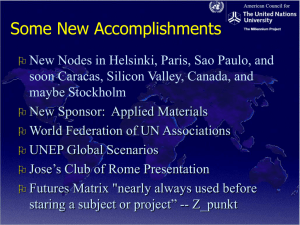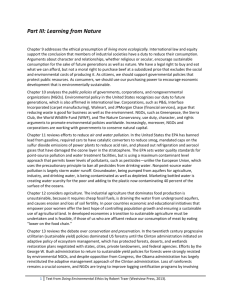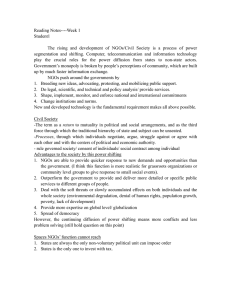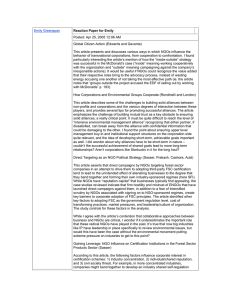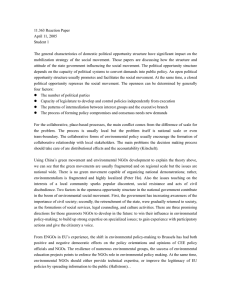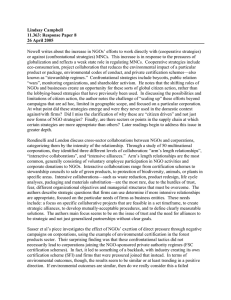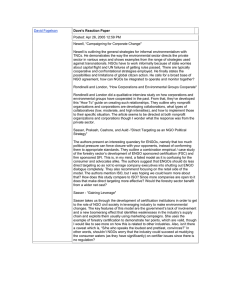Reaction Paper for 11.363 Student 1 By
advertisement
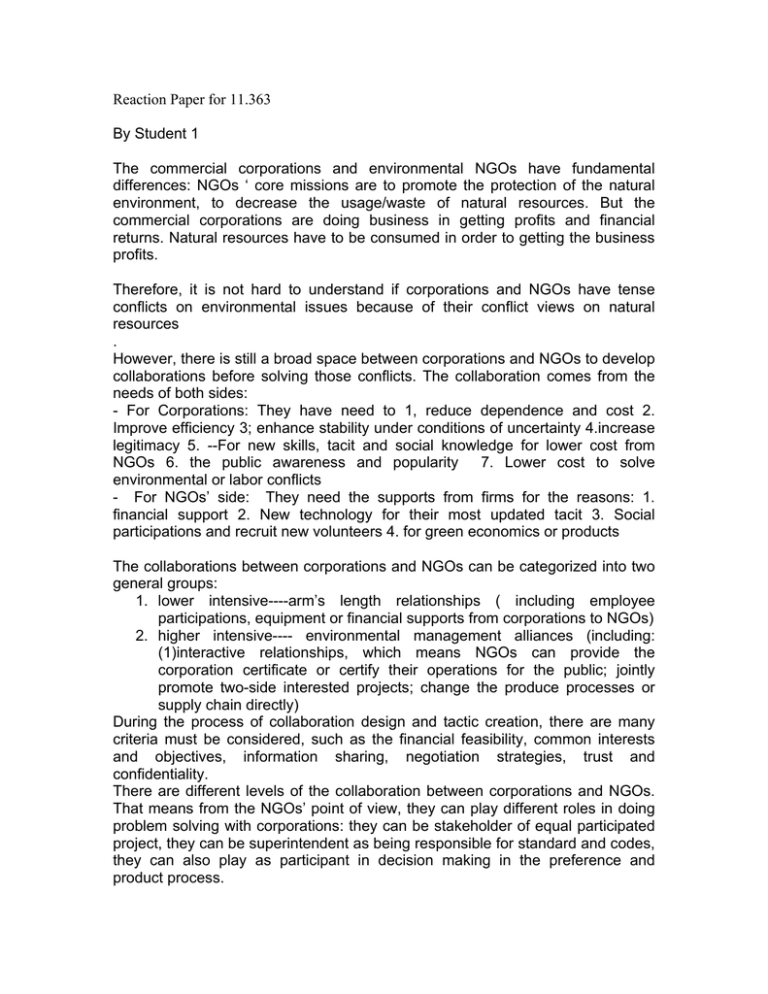
Reaction Paper for 11.363 By Student 1 The commercial corporations and environmental NGOs have fundamental differences: NGOs ‘ core missions are to promote the protection of the natural environment, to decrease the usage/waste of natural resources. But the commercial corporations are doing business in getting profits and financial returns. Natural resources have to be consumed in order to getting the business profits. Therefore, it is not hard to understand if corporations and NGOs have tense conflicts on environmental issues because of their conflict views on natural resources . However, there is still a broad space between corporations and NGOs to develop collaborations before solving those conflicts. The collaboration comes from the needs of both sides: - For Corporations: They have need to 1, reduce dependence and cost 2. Improve efficiency 3; enhance stability under conditions of uncertainty 4.increase legitimacy 5. --For new skills, tacit and social knowledge for lower cost from NGOs 6. the public awareness and popularity 7. Lower cost to solve environmental or labor conflicts - For NGOs’ side: They need the supports from firms for the reasons: 1. financial support 2. New technology for their most updated tacit 3. Social participations and recruit new volunteers 4. for green economics or products The collaborations between corporations and NGOs can be categorized into two general groups: 1. lower intensive----arm’s length relationships ( including employee participations, equipment or financial supports from corporations to NGOs) 2. higher intensive---- environmental management alliances (including: (1)interactive relationships, which means NGOs can provide the corporation certificate or certify their operations for the public; jointly promote two-side interested projects; change the produce processes or supply chain directly) During the process of collaboration design and tactic creation, there are many criteria must be considered, such as the financial feasibility, common interests and objectives, information sharing, negotiation strategies, trust and confidentiality. There are different levels of the collaboration between corporations and NGOs. That means from the NGOs’ point of view, they can play different roles in doing problem solving with corporations: they can be stakeholder of equal participated project, they can be superintendent as being responsible for standard and codes, they can also play as participant in decision making in the preference and product process.
